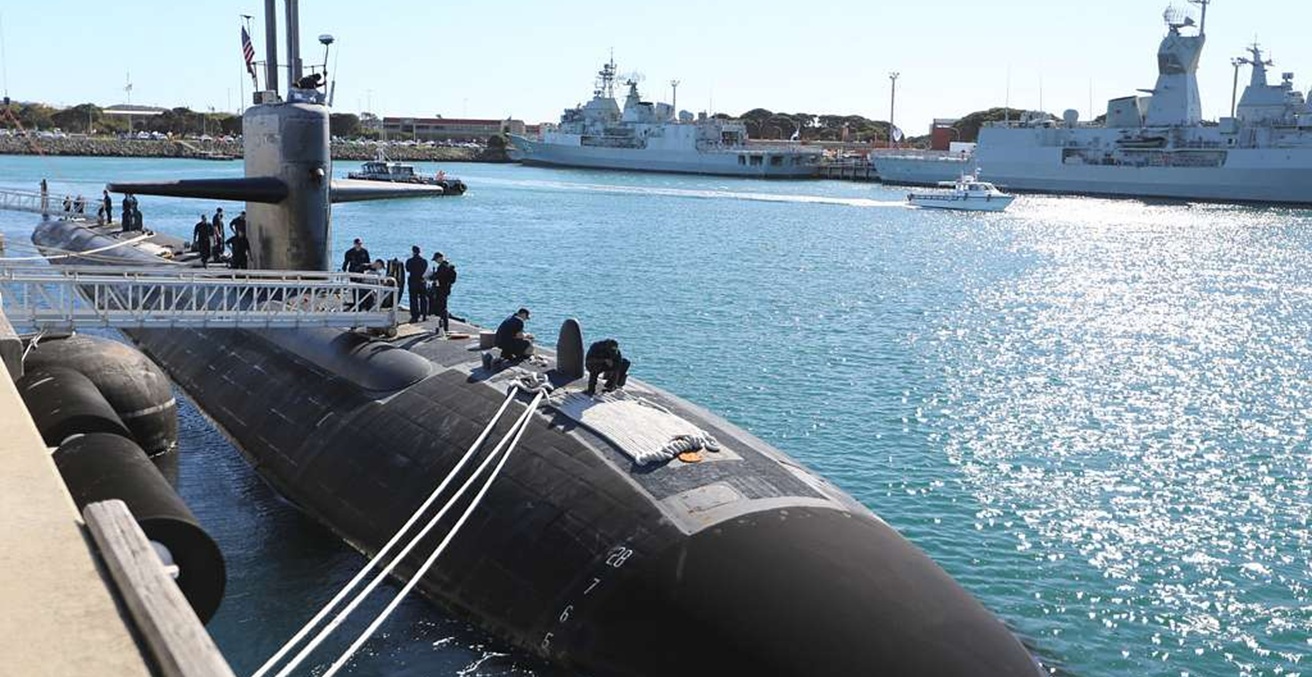This week in Australian foreign affairs: new implications for AUKUS in Defence Trade Controls Amendment Act 2024; Marles responds to Trump criticism of Rudd; Wong issues joint statement calling out cyber attacks by China state-backed actors in the UK; new investment in regional tuberculosis treatment, and more.
On 27 March, Deputy Prime Minister and Secretary for Defence Richard Marles released a statement marking the passing of The Defence Trade Controls Amendment Act 2024. The Act will “strengthen Australia’s national security and support local industry by unlocking defence trade, innovation and collaboration with our AUKUS partners.” The statement further highlighted that the cutting of red tape will “fast-track the delivery of high-end capabilities to the Australian Defence Force by streamlining trade and collaboration with our AUKUS partners, maintaining Australia’s capability edge.” The act is proposed to support “the establishment of a licence-free environment for Australian industry, higher education and research sectors” and unlock “investment and collaboration opportunities for Australian defence industry […], with the national exemption for export permits to the US and UK to benefit an estimated $5 billion in annual defence exports.”
In an interview on 24 March, Marles responded to questions about the ambassadorship of Kevin Rudd in Washington following critical statements by Donald Trump. Marles defended Rudd, remarking that the ambassador was chosen as “somebody who would bring a lot of prestige to the relationship as a former Prime Minister. And all of that has been put into action since he’s been the Ambassador to the United States.” Marles further remarked that Rudd had been “working at a pace in getting legislation or lobbying in respect of legislation in the Congress, across the political spectrum, with Democrats and Republicans alike.”
Also on 24 March, Marles addressed criticisms by former Labor Prime Minister Paul Keating on the AUKUS submarines. Keating was cited by Chinese Global Times as the “worst international decision” and a surrendering of Australia’s sovereignty to the US in a meeting with China’s foreign Minister, Wang Yi. Marles noted that Keating “doesn’t speak for the Government today” or that there was “anything really remarkable” about the comments. Marles stated that “the biggest gamble of all would be to not seek to acquire a […] highly capable long range submarine capability for the future. This is the single most important military platform we have.” He continued, “We need it in the future and walking down the path of nuclear propulsion is the only way we get it.”
Minister for Foreign Affairs Penny Wong joined the Minister for Home Affairs and Minister for Cyber Security Clare O’Neil on 26 March in a joint statement “expressing serious concerns about malicious cyber activities by China state-backed actors targeting UK democratic institutions and parliamentarians.” The statement outlined the “persistent targeting of democratic institutions and processes,” which “has implications for democratic and open societies like Australia.” The statement highlighted that the “Government continues to invest in protecting our public institutions and strengthening our national cyber security defences, including through the implementation of the 2023-2030 Australian Cyber Security Strategy.”
On 24 March, Wong joined Minister for International Development and the Pacific, and Minister for Defence Industries Pat Conroy in a joint media release on the government’s investment in regional tuberculosis treatment. The Global Alliance for Tuberculosis (TB Alliance) will receive AUD$17 million to “develop more effective treatments for tuberculosis and help ensure they reach those who need them.” The statement continued, “Through its new PeerLINC TB Knowledge Hub in Manila, and working with partners such as the Burnet Institute, TB Alliance will support governments to roll out these new treatments including in Indonesia, Philippines, Vietnam, and Papua New Guinea. This will help to ensure that people with tuberculosis across our region are receiving the best available medicines.” The program will be funded through Australia’s Partnerships for a Healthy Region initiative, which helps to build resilient and equitable health systems in the Pacific and Southeast Asia.
Dr Adam Bartley is the managing editor for AIIA’s Australian Outlook and weekly columnist for The Week in Australian Foreign Affairs. He is a former Fulbright Scholar and resident fellow at the Elliot School for International Affairs, the George Washington University. Adam also has positions as post-doctoral fellow at the Centre for Cyber Security Research and Innovation RMIT University and as program manager of the AI Trilateral Experts Group. He can be found on Twitter here.
This article is published under a Creative Commons License and may be republished with attribution.




